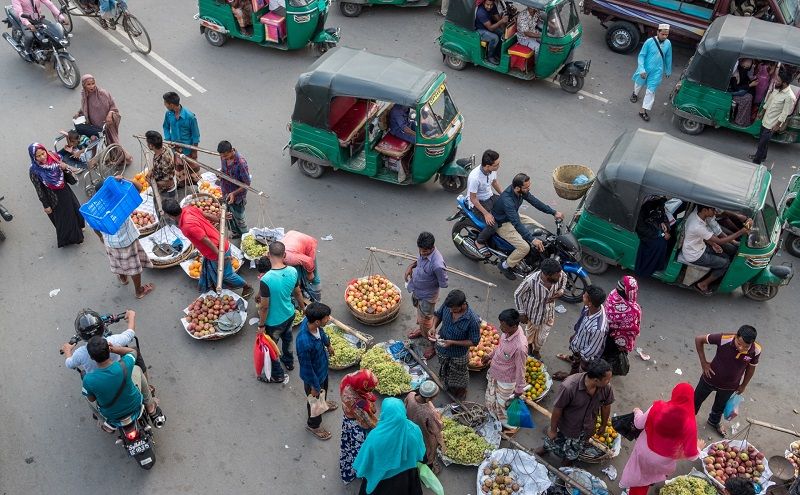Thursday November 21, 2024
- ALL NEWS
- SMALL & MEDIUM ENTERPRISES (SME)
- INTERNATIONAL TRADE
-
REGIONS
-
NON-REGIONAL
Search

The world and its industries are still reeling from the lockdown impacts possed by the coronavirus pandemic. International export and decades of demand-supply balances have been disrupted. This was very much the story in Bangladesh, where rice exports from India peak during Ramadan celebrations. Trucks, cars, and workers alike are all at a standstill. Meanwhile, demands keep rising.
Demand for Rice
It's no secret that rice is a significant food and source of essential nutrition for many tribes and nationalities worldwide. The gulf nations, specifically the United Arab Emirates, choose different rice varieties as their primary food staple. Hence, one of the countries with the highest per capita rice consumption.
In these uncertain times, significant rice suppliers, such as China, Vietnam, and India, had to take drastic measures to ensure internal food security. According to reports, the 2019 rice exports summed up to US$21.9 billion. This might seem like an impressive figure, but compared to the previous data from 2015, it's a reduction of -5.9% average. From the look of things, the figure for 2020 will drop even lower.
Countries such as Bangladesh rely on basmati rice exports from Haryana and Punjab. The raging pandemic has done nothing to dull the demand. Even others coming from other Gulf countries are increasing, especially for the varieties of basmati rice.

High Demand and Lockdown Impacts
During the lockdown, the increased demand for rice has resulted in a spike in its price by 10-15%. However, this only states one cause of increased rice prices. Labor shortages on farms, and in production companies is also a major contributing factor.
Besides, the operational costs of companies in many rice exporting countries have skyrocketed. Most, if not all, governments worldwide have charged companies to implement strick health measures in an attempt to fight the spread of COVID-19. Some of these measures that include the supply and the wearing of disposable nose masks, hand gloves, and test kits have increased the cost of doing business for most companies.
Those without the financial muscle to cope with these additional costs have been forced to close their doors. Meanwhile, nations within the Gulf region are continuing to place orders and willing to pay cash despite the rising prices. GCC countries such as Cambodia and Saudi Arabia are still placing orders for rice varieties prices such as Pusa-1121 basmati. The cost of one kilogram of this particular variety of basmati rice has risen from ₹60-61 to ₹65-66.
If anything, the coronavirus pandemic's lockdown impact is still unfolding, but one thing is sure thus far; it's positively affecting demand in countries like Bangladesh. The challenge lies with rice exporters to find a way to keep up.
At Exports News, we're proud to provide you with the latest updates from all over the world. Especially in unprecedented times such as these, it's crucial to stay informed. Subscribe to our newsletter today to stay up to date!
No Comments
Add comment



We’re happy you are satisfied with Exports News. Please let us know if you need enything!
support@exportsnews.comWe’re sorry your experience was not satisfactory. Please let us know how we can improve your experience:
Please contact us with any questions or concerns: support@exportsnews.com


Your feedback has been received! If you have any other questions or concerns, please contact us at:


There aren't any comments yet. Be the first to comment!